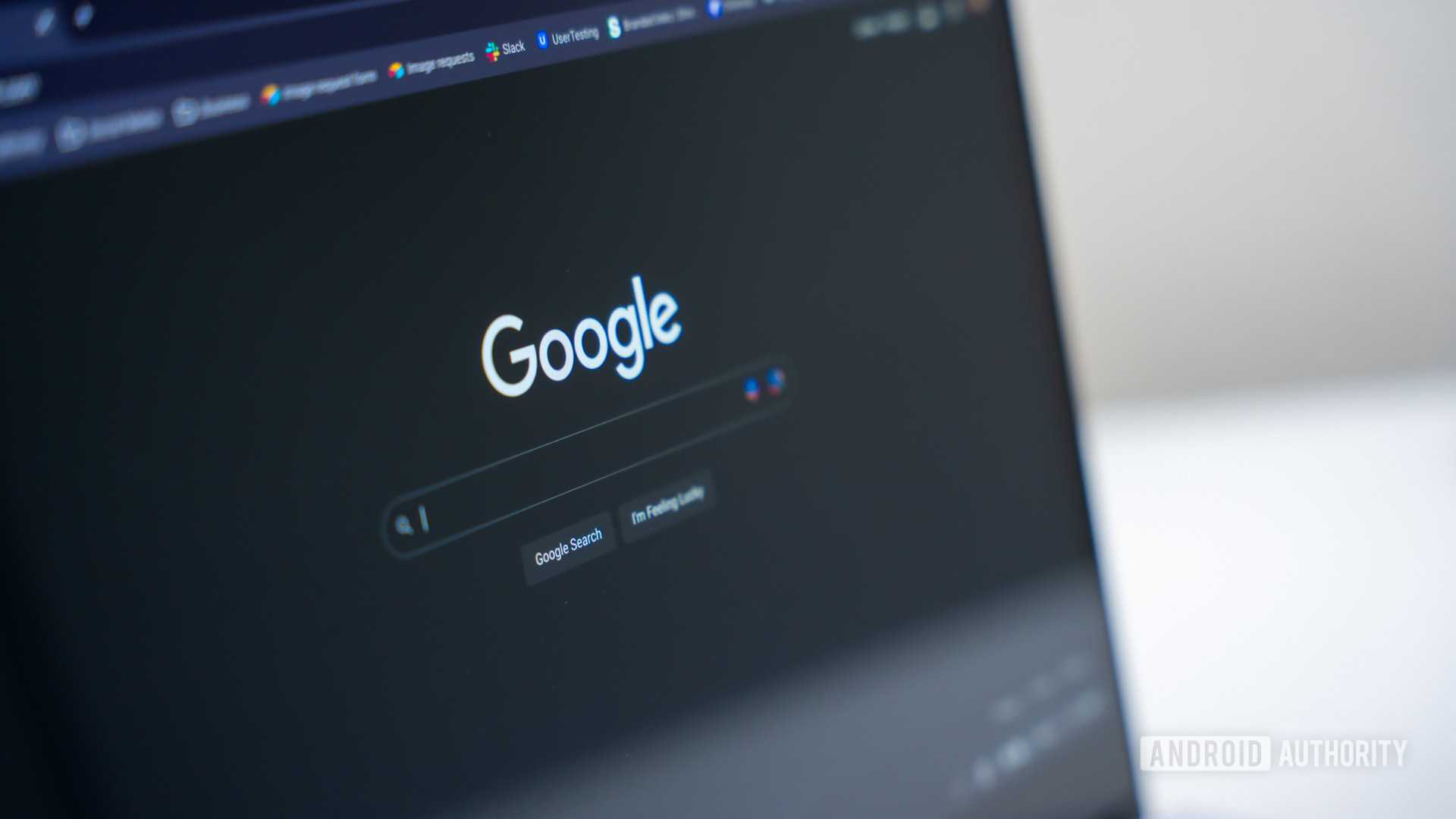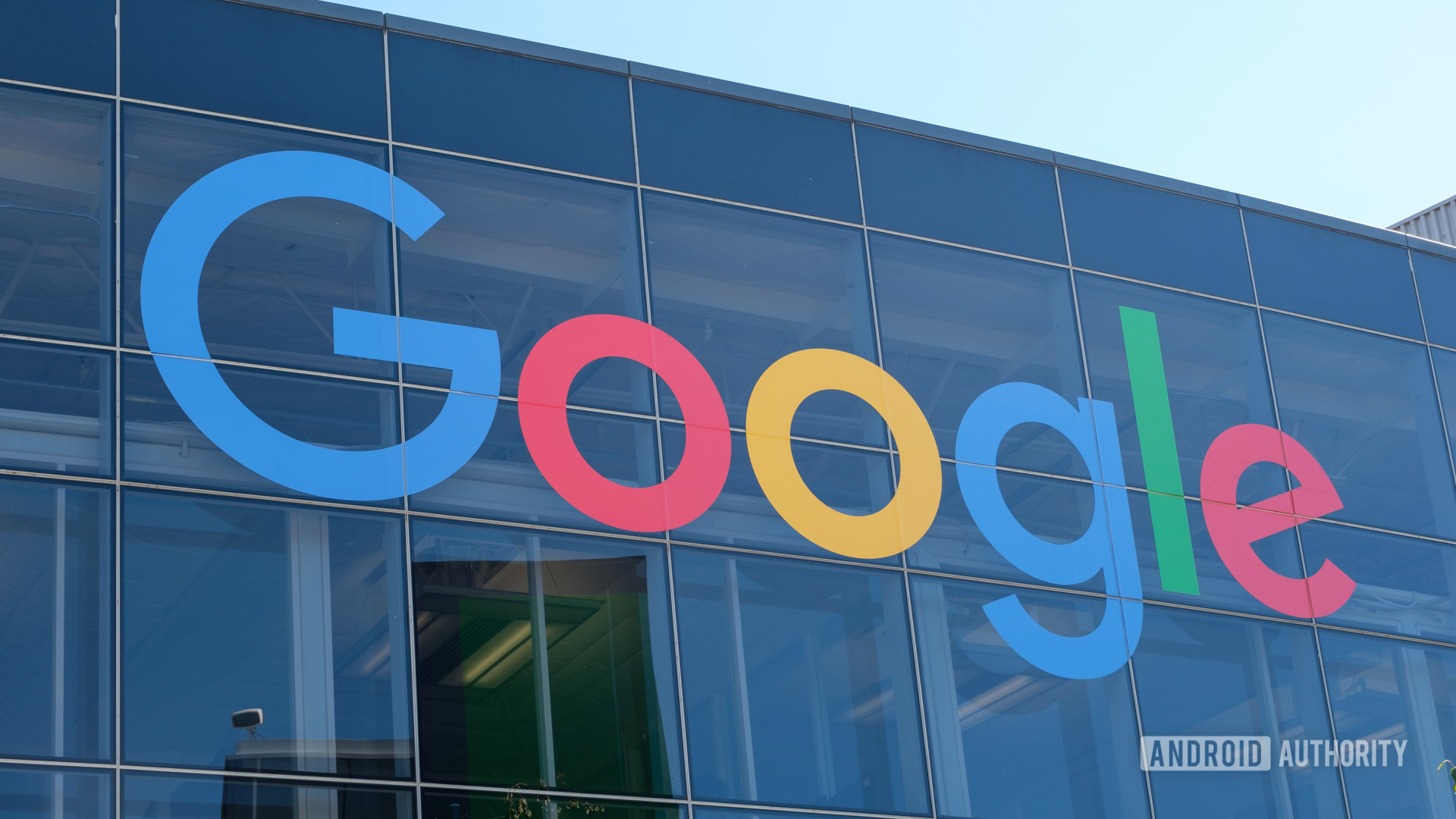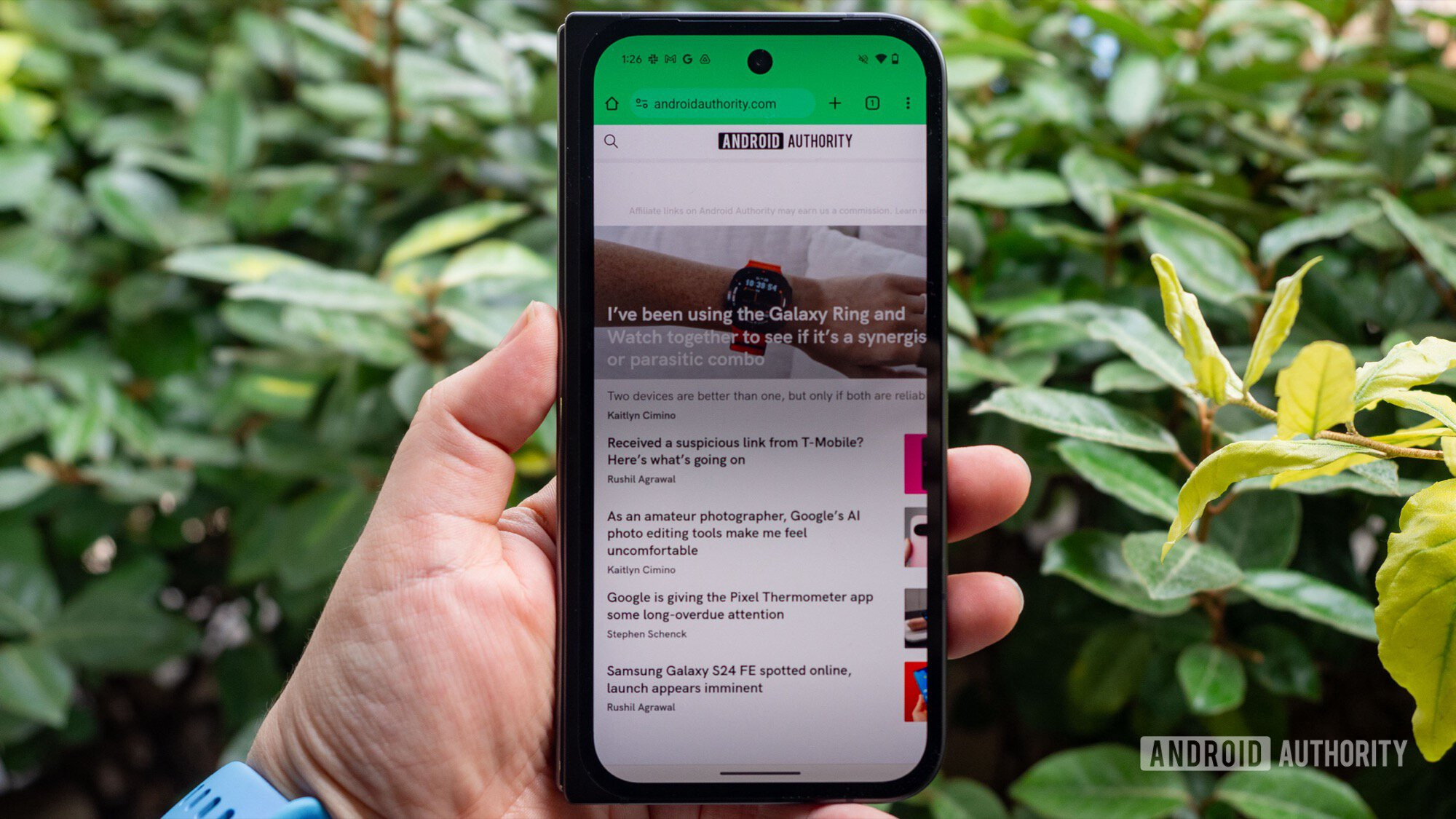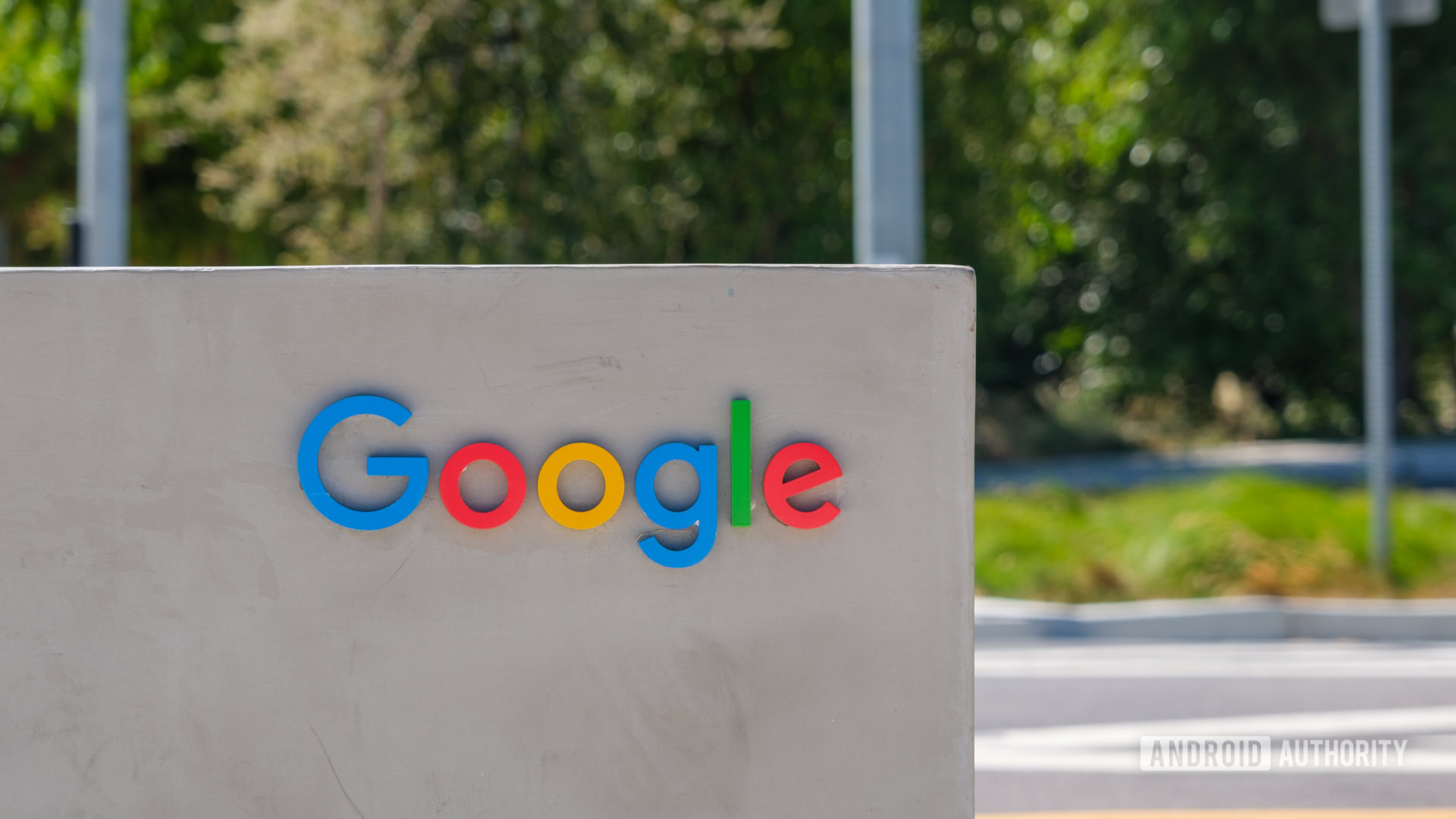Ryan Haines / Android Authority
you’ve conquered capitalism when the title of your organization turns into a verb. Googling is now a synonym for conducting an web search in our lexicon, which arguably trumps telephones and Android OS because the tech large’s crowning achievement. However it’s not simple to succeed in such heights with out recommendations of monopolistic habits, which landed Google with an antitrust case within the US courthouses.
In what’s being known as some of the important antitrust lawsuits in many years, the US authorities is accusing Google of utilizing its dominance within the search engine market to stifle competitors. For an trade that thrives on innovation and disruption, this case may mark a turning level — not only for Google however for Massive Tech as an entire.
The protracted lawsuit remains to be rumbling on, and it may be robust to get your head round. On this easy-to-follow rundown, we’ll clarify the Google antitrust case, the place issues stand in the present day, and, most significantly, why it is best to care.
QUICK ANSWER: WHERE DO THINGS STAND?
As of December 2024, the antitrust lawsuit towards Google is in its treatment section. In August, a federal choose dominated that Google violated antitrust legal guidelines by sustaining an unlawful monopoly over on-line search. The Division of Justice (DOJ) is proposing measures to deal with this, together with doubtlessly requiring Google to divest its Chrome browser and share search knowledge with opponents.
Google plans to enchantment the ruling, and a ultimate determination on cures is anticipated by mid-2025.
What’s the Google antitrust case about?

Edgar Cervantes / Android Authority
In a nutshell, the US authorities’s case towards Google facilities on whether or not the tech large has maintained its dominance in on-line search and promoting by means of truthful competitors or by means of unlawful, anti-competitive practices. The Division of Justice filed the lawsuit in October 2020, claiming that Google has abused its energy to stifle competitors and restrict client alternative.
An vital component of the case is Google’s agreements that guarantee its search engine is the default choice on many units. For instance, the corporate pays billions of {dollars} to Apple yearly to make Google Search the default on iPhones and Safari. It additionally bundles Google Search with its personal Android working system, making it the default on most smartphones. In response to the DOJ, these offers create a near-insurmountable barrier for rivals, solidifying Google’s dominance and leaving customers with fewer options.
It may result in important adjustments in Google’s enterprise mannequin.
Google counters these allegations, arguing that its dominance is solely the results of providing one of the best providers. The corporate insists that customers follow Google as a result of they like it, not as a result of they’re compelled to. Google additionally factors out that switching to a rival search engine is only a few clicks away, that means customers aren’t locked into its ecosystem.
The stakes are huge, not just for Google however for the tech trade at giant. If the DOJ prevails when the mud settles, it may result in important adjustments in Google’s enterprise mannequin, corresponding to breaking apart its search and promoting divisions or imposing restrictions on the way it operates. A win for Google would reinforce the established order and probably have a chilling impact on future regulatory actions towards Massive Tech.
This lawsuit isn’t nearly Google’s habits — it’s about setting a precedent for the way governments can regulate tech giants in an period the place digital markets are more and more concentrated. Put merely, the trial may reshape how the web works.
Antitrust refers to a set of legal guidelines designed to advertise truthful competitors and stop corporations from gaining extreme energy that might hurt customers or stifle innovation. In the US, these legal guidelines goal to cease practices like monopolies, price-fixing, or mergers that scale back competitors. The objective is to make sure customers profit from alternative, aggressive costs, and innovation within the market.
Success in enterprise isn’t unlawful, however antitrust legal guidelines step in when an organization’s habits crosses the road into anti-competitive practices.
Why does the Google case matter?

Ryan Haines / Android Authority
The Google antitrust case isn’t nearly one firm — it’s about the way forward for how the web works. Google’s search engine has grow to be so ingrained in our lives that it’s simple to overlook options exist. Nonetheless, with the corporate controlling over 90% of the worldwide search market, this lawsuit challenges whether or not that dominance is sweet for customers, companies, and innovation.
For on a regular basis customers, the case may change how we seek for info on-line. Think about opening your browser and seeing a contemporary mixture of search engines like google and yahoo vying in your consideration, quite than Google being the default in all places. Advocates of the lawsuit argue this is able to create extra alternative and foster competitors. Critics fear that that is all truthful recreation within the free market, and disrupting Google’s ecosystem would possibly imply shedding a seamless expertise many individuals admire.
For companies, the stakes are simply as excessive. Google’s management over search advertisements provides it immense energy over who will get seen on-line, from native retailers to international manufacturers. If regulators win, the digital promoting panorama may shift dramatically, leveling the taking part in subject till the following unexpected challenges come up.
However this case goes past all of that. It’s a litmus take a look at for regulating Massive Tech’s affect over our digital lives.
How did the Google antitrust case come up?

Edgar Cervantes / Android Authority
Google started in 1998 as a search engine created by Larry Web page and Sergey Brin, two Stanford graduate college students. Their imaginative and prescient was to prepare the web’s info and make it universally accessible. At its core was a groundbreaking algorithm known as PageRank, which ranked web sites based mostly on relevance and high quality quite than easy key phrase matches.
Google shortly outpaced opponents like Yahoo and Ask Jeeves, turning into the go-to search engine. Through the years, it expanded into different areas, together with e mail with Gmail, video sharing with YouTube, cell working programs with Android, and any variety of {hardware} units. By the late 2000s, Google was not only a search engine however an ecosystem of interconnected merchandise, making it almost unattainable for customers to keep away from interacting with the corporate in some capability.
The evolution of search: From innovation to regulate
The Google antitrust case facilities round the truth that its search engine holds over 90% of the worldwide search market share. Google’s early success in search got here all the way down to technical innovation, however its continued dominance owes a lot to its capability to safe its place. The corporate leveraged its rising energy to make sure its search engine was the default choice in lots of contexts, from pre-installed Android apps to partnerships with browsers.
The DOJ argues that these methods — mixed with Google’s huge promoting ecosystem — create insurmountable obstacles for rivals. Serps like Bing or DuckDuckGo, for instance, wrestle to compete when most customers encounter Google because the default and lack sturdy incentives to modify. The corporate has persistently defended its practices as authorized, pointing to the benefit with which customers can choose options.
The Google antitrust case begins
By the late 2010s, Google had been underneath antitrust scrutiny for years. A Federal Commerce Fee (FTC) investigation in 2013 raised issues about Google’s practices, however no prices had been filed. Nonetheless, mounting frustration with Massive Tech’s energy led to renewed curiosity in regulating the trade.
In October 2020, the DOJ filed its landmark antitrust lawsuit towards Google, accusing the corporate of anti-competitive practices in on-line search and promoting. 11 state attorneys normal joined the case, making it the biggest antitrust problem within the US for the reason that Microsoft case within the late Nineties. The lawsuit accused Google of abusing its dominance by crafting exclusionary offers and leveraging its ecosystem to dam rivals.
Key milestones within the case
- October 2020: The DOJ information its antitrust lawsuit, accusing Google of utilizing its dominance to dam rivals.
- 2021–2022: Pre-trial discovery unveils inner paperwork, revealing Google’s methods for sustaining its market place.
- September 2023: The trial begins, with the DOJ and Google presenting opening arguments. Testimonies from Google executives, specialists, and opponents spotlight the stakes concerned.
- October 2024: The choose guidelines that Google violated antitrust legal guidelines, specializing in its offers with Apple and default preparations.
- November 2024: The treatment section begins, with the DOJ proposing measures that might embody breaking apart components of Google’s enterprise or forcing adjustments to its agreements.
The place issues stand in the present day

As of December 2024, issues aren’t going Google’s approach. In August, US District Choose Amit P. Mehta dominated that Google violated antitrust legal guidelines by sustaining an unlawful monopoly over on-line search and search promoting. In a prolonged judgment, the courtroom discovered that Google’s unique agreements with browser builders, smartphone producers, and wi-fi carriers successfully stifled competitors, permitting the corporate to cost supra-competitive costs and reap monopoly income.
Following this verdict, the case has entered the treatment section, the place the DOJ is proposing measures to deal with Google’s anti-competitive practices. Among the many proposed cures are:
- Divestiture of Chrome: Forcing Google to promote or spin off its Chrome browser to cut back its management over the search market.
- Ending default search agreements: Prohibiting Google from paying corporations like Apple to set Google because the default search engine on their units, aiming to foster competitors amongst search suppliers.
- Information sharing with opponents: Requiring Google to share its search knowledge with rival search engines like google and yahoo at minimal value, enabling them to enhance their providers and compete extra successfully.
These proposed cures are designed to dismantle the obstacles which have prevented different search engines like google and yahoo from gaining a foothold available in the market. The goal is to boost client alternative and foster innovation. A choice on cures is anticipated in mid-2025.
Google has introduced plans to enchantment the ruling, arguing that its enterprise practices are lawful and that its success is as a result of high quality of its services and products. The enchantment course of is anticipated to increase over a number of years, throughout which the implementation of any cures could also be delayed.
The ultimate consequence of this case may set a precedent for the way antitrust legal guidelines are utilized to digital markets and affect future regulatory actions towards different tech giants. Because the proceedings proceed, stakeholders throughout the trade are intently monitoring developments. We’ll revisit this abstract periodically to maintain you posted on the place the lawsuit stands.
How does this examine to different Massive Tech instances?

Robert Triggs / Android Authority
The Google antitrust case is commonly likened to a different landmark battle: the US vs Microsoft within the late Nineties. In that case, Microsoft confronted allegations of utilizing its dominance within the PC working system market to crush opponents, significantly by bundling its Web Explorer browser with Home windows. The parallels are putting: simply as Microsoft’s bundling practices stifled browser competitors, the DOJ argues that Google’s default search offers and ecosystem integration depart little room for rivals.
Nonetheless, this case additionally stands out in vital methods. Microsoft’s dominance was rooted in desktop computing, whereas Google’s management extends throughout a number of layers of the digital world — search, promoting, and even the web infrastructure. The stakes are larger, given how deeply embedded Google’s providers are in our every day lives.
This lawsuit may result in extra drastic outcomes.
Internationally, Google isn’t any stranger to antitrust scrutiny. The European Union has fined the corporate billions over its practices, together with a record-breaking €4.34 billion penalty in 2018 for anti-competitive habits tied to Android. These instances targeted on fines and rapid cures, whereas Microsoft reached a settlement on its matter again within the 90s. This lawsuit may result in extra drastic outcomes, like breaking apart components of Google’s enterprise.
Different Massive Tech corporations, corresponding to Meta, Amazon, and Apple, are additionally underneath regulatory scrutiny, however Google’s case is exclusive in its focus and scope. Not like Meta’s battles over privateness or Amazon’s issues about retail dominance, this case zeroes in on the very infrastructure of the web — search and promoting.
What may this imply for Google?

Rita El Khoury / Android Authority
We’ve already touched on it, however this lawsuit towards Google poses a major menace to its enterprise mannequin, with potential cures that might reshape its operations. Following the August 2024 ruling that Google violated antitrust legal guidelines, the Division of Justice is now contemplating measures to deal with this, together with the doable divestiture of Google’s Chrome browser and restrictions on default search agreements.
The potential sale of Chrome may disrupt Google’s built-in ecosystem, affecting its capability to gather person knowledge and ship focused promoting — a significant income supply. These cures may even influence Google’s ventures into synthetic intelligence, as the corporate has been integrating AI fashions throughout its merchandise, together with Search and Chrome. Limiting Google’s management over these platforms would possibly hinder its AI improvement and deployment methods.
Financially, whereas Google has the assets to soak up fines, the structural adjustments being thought of may result in a lack of market share and a decline in promoting income. The corporate’s status can also be at stake; aggressive antitrust cures may injury its public picture. Google’s plans to enchantment the ruling might finish in a greater consequence, however extending the method over a number of extra years might depart the corporate going through operational uncertainties.
What does this all imply for us?

Edgar Cervantes / Android Authority
At first look, the Google antitrust case would possibly appear to be a company authorized drama far faraway from the every day lives of regular folks such as you and me. Nonetheless, we will’t ignore it. The result may have massive implications for the way we search, store, and work together on-line.
By securing default search engine agreements with producers and browsers, Google has created a world the place its search engine appears like the one choice, whether or not they actively select it or not. The ruling towards Google may imply extra competitors within the search market, doubtlessly resulting in extra numerous search outcomes, new options, and so forth.
Customers would possibly see much less dominance by giant firms in search outcomes.
Promoting can also be in play. Google’s management over search advertisements impacts what customers see once they lookup services or products, usually prioritizing advertisers who pays extra. If the lawsuit leads to reforms to Google’s advert practices, customers would possibly see much less dominance by giant firms in search outcomes and extra alternatives for smaller companies to compete.
Nonetheless, some warn that breaking apart Google or imposing restrictive rules may result in unintended penalties. For example, customers might lose the built-in comfort of Google’s ecosystem, the place providers like Gmail, Maps, and Search work seamlessly collectively. There’s additionally the potential for disruptions in innovation, though that is speculative. Throwing the market open may have the alternative impact in relation to novel approaches.
There will probably be loads of individuals who embrace our Google overlords. They’re pleased with their built-in providers and don’t need extra alternative within the matter. That’s truthful sufficient, however we don’t know what an web that’s much less dominated by Google appears to be like like in 2024. There’s additionally a precept to be upheld. If the ruling towards Google stays in place, it sends the message you could’t trample in your opponents unfairly, whether or not the top person is pleased with it or not.





